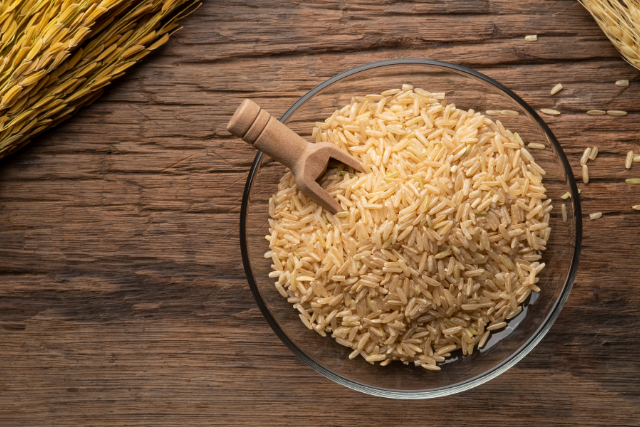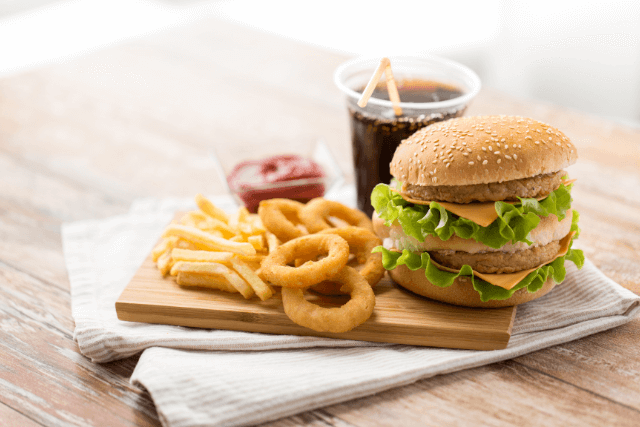Hemorrhoids can be an uncomfortable and painful condition, but with the right diet, you can reduce the symptoms and prevent flare-ups. The best diet for hemorrhoids is one that supports digestive health and ensures regular, easy bowel movements. By focusing on fiber-rich foods, staying hydrated, and avoiding certain irritants, you can significantly improve your overall comfort.
What Are Hemorrhoids?
Before we dive into the best diet for hemorrhoids, it’s important to understand what hemorrhoids are. Hemorrhoids are swollen blood vessels in the rectal area, which can become inflamed due to increased pressure from constipation, diarrhea, or straining during bowel movements. Symptoms include itching, bleeding, discomfort, and pain, especially when sitting or during bowel movements.
Though hemorrhoids are common, you can manage and even prevent them with the right lifestyle changes, including dietary adjustments.
Why Diet Matters for Hemorrhoids
Diet plays a crucial role in managing hemorrhoids because it directly affects your bowel movements. A poor diet can contribute to constipation or diarrhea, both of which can trigger or worsen hemorrhoid flare-ups. By incorporating high-fiber foods and avoiding foods that promote inflammation or constipation, you can significantly reduce your risk of developing or worsening hemorrhoids.
In the next sections, we’ll break down what to eat and what to avoid, so you can make informed choices for your health.

Foods to Eat for Hemorrhoids
A high-fiber diet is essential for maintaining regular bowel movements and preventing constipation. By eating the right foods, you can make your stools soft, easy to pass, and less likely to strain during bowel movements. Here are some of the best foods for hemorrhoid sufferers.
1. Fiber-Rich Fruits and Vegetables
Fruits and vegetables are rich in fiber, which adds bulk to the stool and helps it pass smoothly through the digestive tract. Aim to include a variety of colorful produce in your diet for optimal digestive health. Some fiber-rich fruits and vegetables include:
- Apples (with skin)
- Berries (strawberries, raspberries, blueberries)
- Carrots
- Broccoli
- Spinach
- Kale
- Sweet potatoes
These foods not only provide fiber but also offer essential vitamins and minerals that support overall health.
2. Whole Grains
Whole grains are another excellent source of dietary fiber, helping to regulate bowel movements and prevent constipation. Unlike refined grains, whole grains retain their fiber content and nutrients. Some great whole grain options for hemorrhoid sufferers include:
- Oat
- Quinoa
- Brown rice
- Whole wheat bread
- Barley
Whole grains help keep your digestive system functioning smoothly, preventing straining and reducing the risk of hemorrhoid flare-ups.
3. Legumes and Beans
Legumes and beans are packed with fiber, making them a perfect addition to the best diet for hemorrhoids. These foods are also high in protein, which is important for tissue repair, especially for people dealing with hemorrhoid inflammation. Try including the following in your meals:
- Lentils
- Chickpeas
- Black beans
- Kidney beans
Adding legumes to your diet can help improve your digestive health and provide a natural remedy for hemorrhoid symptoms.
4. Nuts and Seeds
Nuts and seeds are fiber-rich snacks that help prevent constipation. They also provide healthy fats that support overall health. Incorporating nuts and seeds into your diet can help soften stools and make them easier to pass. Some great options include:
- Almond
- Chia seeds
- Flaxseeds
- Walnuts
These snacks can easily be added to your meals or eaten on their own as a filling, nutritious snack.
5. Water and Fluids
In addition to eating high-fiber foods, staying hydrated is crucial for managing hemorrhoids. Water helps soften stools and makes bowel movements easier. Aim to drink plenty of water throughout the day—about eight glasses (64 ounces) is generally recommended.
You can also drink herbal teas like chamomile or ginger tea, which help with digestion and may reduce inflammation associated with hemorrhoids.
Foods to Avoid for Hemorrhoids
Just as certain foods can help alleviate hemorrhoid symptoms, others can make them worse. These foods can cause constipation, increase irritation, or contribute to inflammation. Here are some foods to avoid in your diet:
1. Processed Foods
Processed foods are often low in fiber and high in unhealthy fats and sugars, which can cause constipation and lead to flare-ups. Fast food, packaged snacks, and ready-to-eat meals should be limited or avoided. These foods can also promote inflammation, which may worsen hemorrhoid symptoms.
2. Red Meat
Red meat is difficult to digest and can cause constipation when consumed in excess. It also lacks fiber, which is essential for healthy bowel movements. If you enjoy meat, opt for lean poultry or fish instead. These are easier on the digestive system and can help prevent hemorrhoid flare-ups.
3. Dairy Products
Dairy products, such as milk, cheese, and ice cream, can sometimes lead to constipation, especially if consumed in large amounts. If you find that dairy exacerbates your hemorrhoid symptoms, try reducing your intake or switching to lactose-free alternatives.
4. Fried and Greasy Foods
Fried and greasy foods can irritate the digestive system, leading to discomfort and bloating. These foods can slow down digestion and contribute to constipation. If you’re prone to hemorrhoid flare-ups, it’s best to avoid these types of foods and opt for healthier cooking methods like grilling, baking, or steaming.
5. Spicy Foods
Spicy foods can irritate the digestive system, especially in individuals who are sensitive to them. For some people, spicy foods can trigger hemorrhoid flare-ups by causing inflammation or increasing irritation in the anal area. If you enjoy spicy foods but find they worsen your hemorrhoids, try cutting back or avoiding them altogether.

Additional Tips for Managing Hemorrhoids Through Diet
Aside from eating fiber-rich foods and avoiding irritants, here are a few additional tips to help manage hemorrhoid symptoms through your diet:
1. Eat Smaller, More Frequent Meals
Rather than eating large meals that can lead to digestive discomfort, try eating smaller meals throughout the day. This can help prevent constipation and keep your digestive system functioning smoothly.
2. Avoid Straining During Bowel Movements
Straining during bowel movements can worsen hemorrhoid symptoms by putting additional pressure on the veins in the rectal area. Ensure you eat enough fiber and drink plenty of fluids to help soften stools and make bowel movements easier.
3. Use Probiotics
Probiotics can help promote a healthy gut and support digestion. You can get probiotics from foods like yogurt, kefir, sauerkraut, and kimchi. These can help prevent constipation and maintain a healthy digestive system.
4. Exercise Regularly
While diet plays a significant role, regular physical activity is also important for preventing hemorrhoids. Exercise helps stimulate bowel movements, reduce constipation, and improve circulation, which can reduce the risk of developing hemorrhoids.

Popping a Pilonidal Cyst: A Potential Trigger for Hemorrhoids?
In some cases, individuals who suffer from conditions like popping a pilonidal cyst may experience increased pressure on the rectal area, which could lead to hemorrhoid development. Pilonidal cysts are often located near the tailbone and can cause pain or irritation if they become infected or irritated. If you have a pilonidal cyst, it’s important to seek medical advice and avoid actions that may cause additional strain on your body, including excessive pressure during bowel movements.
By following the right diet, managing your bowel habits, and avoiding certain foods, you can effectively prevent hemorrhoids and manage existing symptoms. Schedule a consultation with us today to discuss your symptoms and receive expert advice on how to manage both conditions effectively.
Conclusion
The best diet for hemorrhoids focuses on fiber-rich foods that promote healthy digestion and prevent constipation. By including more fruits, vegetables, whole grains, legumes, and seeds in your diet, you can soften stools and reduce the pressure on the rectal area. Drinking plenty of water and avoiding processed foods, red meat, and dairy can also help prevent hemorrhoid flare-ups.
Managing hemorrhoids through diet is a natural, effective way to reduce symptoms and improve your quality of life. With the right foods and habits, you can keep hemorrhoids at bay and maintain optimal digestive health.



